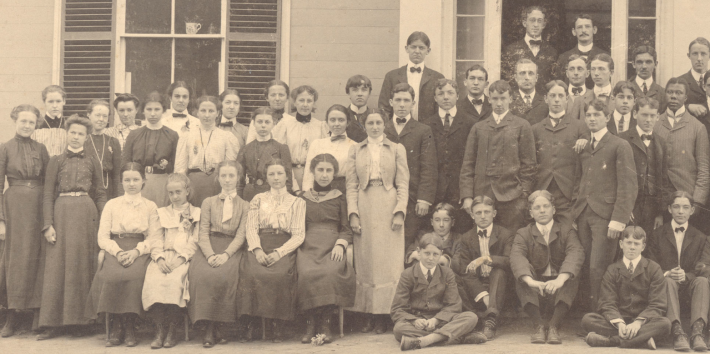Michael Kinnealey
Director of Admission
Embrace the process! 
The oldest, most trite, and sometimes best advice an applicant will hear is to “be yourself” in this process. Given the dramatic physical, intellectual and emotional changes ongoing in a 14 year old, this can be confusing advice, however! My advice is a variation of the standard: think about your story and tell it. This is a long process that fundamentally asks an applicant to tell- and then write- an autobiography while also asking others to submit a biography about them while acknowledging that others will evaluate its strength against other submissions. On the face of it, it is a daunting task. However, if it becomes a search for a school and home that fits the needs of applicant and family, then the understanding of that 14 year old’s story- with some thought about how that 18 year old version of the applicant will tell her story- then the process can be powerfully positive. Please know that we are waiting and excited to hear the story you have to tell!
How do I pick the right school?
The decision to apply to a private school is a significant one for an applicant and for a family. Once the choice has been made to dive into those waters, the confidence and conviction of child and family is often shaken by how many fish are in the sea of independent schools. While the choice of the right school is intensely personal, here are a few more strategies that could be useful.
What is important and where do I want to be?
Some applicants will only apply within an hour of home or know that there is a particular academic need- whether rigor or support- to be met. Others will consider considerable travel to apply to a school that has a curricular or co-curricular program that is most important. Much of this research can be done on the web- and it needs to be done. A family from the North Shore of Boston often has a loop of schools in mind from the start, and often they are appropriate ones as we are blessed with many types of schools, all of which are wonderful educational environments. Yet, it is important to talk at home about single gender AND co-ed schools and whether a boarding school would work in family dynamics- or may actually be better than a day option for the applicant’s needs. Do the research. Have the hard conversations at home. Then pick schools that fit your criterion, but be sure to have some which were not on the initial list and see if you might have a pleasant surprise.
Who I am may be different from who I will be.
The choice to look at private schools is often predicated on a child’s particular talent or need, and that is both good and risky. If a student has a particular academic proclivity or passion or a wonderful talent in a co-curricular area, it is, of course, important to make sure that the choice of school has depth and stability in that area. That said, I would offer that the 14 year old who enters the admission process will have changed as much by the time she is 18 years old as she has between 10 and 14. This is a harder concept for the student to embrace, but it is important to look at new interests and passions, even though they may not yet be considered talents, and consider whether the best school may be one with depth in an area of known strength and the range of offerings that may capture a future talent or need.
The school visit is a two way experience.
With schools chosen to visit- including a few less well known in the mix- make sure to look upon the visit as a shared evaluation. It is normal for an applicant to be apprehensive about being evaluated by an admission officer in an interview setting. However, it is also crucial that she and her parents listen as much as talk. I will tell my admission team that the key to a good interview is not to think up the perfect question, but to discover the questions that elicit the longest and best responses- that is what allows us to evaluate a candidate. The same holds true for a family who is visiting schools. Think about questions that will elicit the information you need to evaluate the school, and then concentrate on the answer. You may ask to meet a department head or director or coach on a visit, and, while it is not a guarantee that they will be available when you arrive- they are teachers with a schedule and students to inspire- they will either speak with an applicant during a visit or follow up afterwards. Yes, a lot of information comes from a website, but it is important to hear how – and whether- a school tells its story to you, in person.
Next post coming soon: School Visit Expectations & the Interview


























